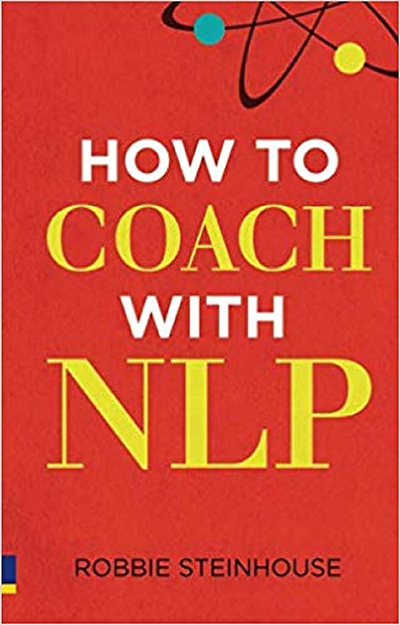How Can NLP Help with Body Image?

This week, we have a guest blog from Kitty Underhill, our social media manager here at NLP School. When she’s not at NLP School HQ, she is a plus size model, speaker and body acceptance advocate, training to be a body acceptance coach. In this post, Kitty looks at the theme of this year’s Mental Health Awareness Week, which is body image, and how we can use NLP to help with negative body image.
How are we ‘programmed’ to dislike our bodies?
When we look at the meaning of NLP, we can break it down into three parts – Neuro, Linguistic, but the most important part here is this: Programming. Programming, in the NLP sense, is the idea that many thoughts, reactions, behaviour and patterns are ‘programmed’ into our brains. We learn these from the world around us, from our peers, our families, and how we were brought up. Just like software on a computer, the programming keeps running in the background, and becomes a part of our internal voice, thoughts and processes. However, many of us do not think to question where this ‘programming’ came from, or whether it is helpful or not. For example, learning to brush your teeth is helpful. What is unhelpful however, is beating yourself up every time you look in the mirror.
This phenomenon is nothing new. It’s become a part of our daily lives. Tabloid papers and magazines will tear peoples’ bodies apart, just for having normal features such as stretchmarks, cellulite or fat rolls. Growing up, I remember seeing issues of Heat magazine where the main feature was ‘The Circle of Shame’, where celebrities beach bodies were looked at through a micro-lens, attacking their every (so called) ‘flaw’. We still have ‘worst dressed lists’. There is still little representation for those who are above a certain size, and if they are represented, they are seen as the goofy, butt of the joke in films and TV, who people cannot love. There is so much more I could list about the problem of mainstream media. The biggest problem of all, is that all these things have programmed us to scrutinise our bodies and not give that a second thought. Hating our bodies has become normal, and we rarely think to question why – all we know is that we are not ‘enough’.
What we must start to do, is to question where this ‘normal’ comes from, how it is influenced, what influences it, and how we can work towards healing ourselves or our clients from the effects of it.
Body Image and The Meta Model
One of the great ways we can challenge this negative programming is by looking at one of NLP’s most valuable tools, the Metal Model.
From our knowledge of The Meta Model, we know that often, when we say something (surface structure), it doesn’t quite convey the whole meaning intended (deep structure). What we have learnt about our bodies is ingrained in our deep structure, and often, when we try to have conversations about our body image, we cannot quite convey how we feel – we just know that we don’t feel good, and that ‘that’s just the way it is’. Like all unhelpful programming, it has come from the world around us, and we have the ability to intervene and question that programming; not only that, but we can work on replacing it with more useful programming.
The Meta Model Violations We Can Make About Our Bodies
There are three main ways that we fail to match deep structure and surface structure – generalisation, deletion, and distortion. When it comes to talking about our bodies, we can easily fall into these traps. For example:
Generalisation: No matter what I do or wear, my body always looks horrible.
We can combat a generalisation like this by firing that use of ‘always’ back at ourselves – always? Can you think of a time where your body didn’t look ‘horrible’? What does ‘horrible’ mean to you? And what can we do to heal that?
Deletion: I feel fat.
Contrary to popular belief, fat is not a feeling. The word fat here has deleted important information about how the person is really feeling. As a society, we have attached negative connotations to this word, so we must challenge what the word means in this context. For many, fat in this context can mean unlovable, unworthy, ashamed, or many other alternatives. By challenging this deletion we can get to the root of the feeling, and then the root of the problem. Ask yourself: ‘what am I really trying to say here?’
Distortion: My stomach/arms/thighs/*insert other body part here* makes me upset.
This is what we call a ’cause and effect’ distortion. A body part doesn’t have the ability to make someone upset in the literal sense, so it’s key to work out the link between the cause (the body part in question) and the effect (being upset). For example: how exactly, does *body part* make me upset? From there, we can try and get to the root of exactly why parts of ourselves don’t make us feel good, and even try to work out where we have learnt that from, so we can replace that with more helpful, kinder ideas about our body parts.
A Movement Toward Self-Acceptance
When body hatred has been a societal norm for as long as many of us can remember, self acceptance can feel revolutionary. Speaking from personal experience, it is not a linear process, and there will inevitably be ups and downs. When I’m on more of a down, I always remember something that Robbie, NLP School’s trainer, said on my Practitioner training – that when we are in a negative state, we must try our best to accept that state without judgement or shame. As the Mental Health Awareness Week go-to phrase says – it’s ok to not be ok. And if we learn to be kinder to ourselves, to our bodies, then hopefully, acceptance will stop being an alien concept, and become our go-to, base state.
Did you like this post?
Then check out our events and courses!
Where to find us
For posts, events, free open days and more, follow NLP School on:
What to read next
Improve Your Confidence With NLP
Why Confidence is Like a Layer Cake









